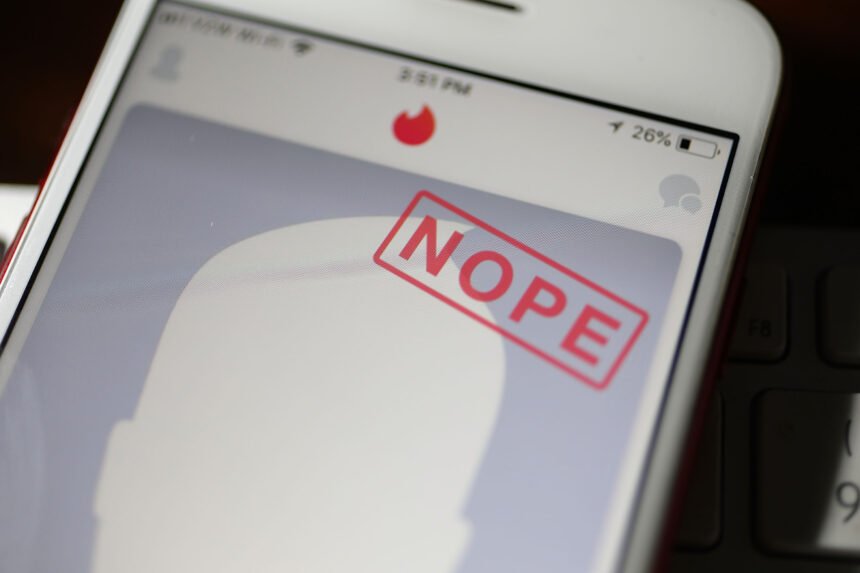America’s youngest adult generation is growing more politically divided along gender lines—and that divide appears to be influencing how they approach romantic relationships.
As young women lean liberal and young men trend conservative, dating across party lines is becoming increasingly uncommon. While older generations, including millennials, appear more willing to bridge ideological gaps, Gen Z is redefining what constitutes a deal-breaker.
Why It Matters
If young adults increasingly refuse to form relationships across ideological lines, that could reinforce echo chambers, reduce empathy and limit the potential for political compromise in everyday life. As romantic relationships often influence long-term community ties and even voting behavior, the polarization seen in dating may contribute to deeper societal divisions over time.
Sociologists and political scientists warn that when personal identity becomes tightly aligned with partisanship, it can erode trust in mixed-ideology households and communities. And with Gen Z expected to become the largest voting bloc in the next decade, their unwillingness to bridge political divides—romantically or otherwise—could have lasting effects on the nation’s political cohesion.
Joe Raedle/Getty Images
What To Know
Recent data from eharmony’s 2025 Dating Diaries found that 28 percent of Gen Z singles said differing political views could cause them to turn down a date—compared with 21 percent of millennials.
While the majority still say they’d consider a partner with opposing views, the gap suggests Gen Z has less political flexibility in their romantic lives.
This comes amid a broader cultural shift. An October poll from the New York Times and Siena College poll showed a striking 51-point gender divide among Gen Z voters. Women aged 18 to 29 favored former Vice President Kamala Harris over President Donald Trump by 38 points, while men in the same group favored Trump by 13 points. No other generation exhibits a gap this wide.
In an earlier New York Times column, opinion writer Jessica Grose explored how this political mismatch may translate into real-world dating behavior.
Some people said that extreme views—on either side—often deterred them from pursuing relationships. And while political identity is not always the first filter for young singles, for some, particularly around polarizing issues like abortion, it’s non-negotiable.
According to eharmony’s 2025 report, while the majority of singles say they prioritize core values and emotional connection, a significant minority—especially younger daters—are drawing hard lines around ideological compatibility.
What People Are Saying
Wendy Walsh, psychology professor at California State University Channel Islands and ambassador for datingadvice.com, told Newsweek: “In the last few years, males have become increasingly conservative, and the most liberal and progressive group in America is young females. This political polarization is already creating problems in the dating scene. People in their 20s are either not dating at all, or competing for a very small group of people who match their political views.”
Sean Leonard, nurse practitioner at Healthy Life Recovery, told Newsweek: “As a psychiatric nurse practitioner working closely with younger adults, I’ve noticed something striking with Gen Z—politics is no longer just a civic matter; it’s personal, deeply tied to identity, and often a non-negotiable factor in relationships. For many in this generation, political values are seen as extensions of core beliefs—how someone views social justice, climate change, reproductive rights, or mental health policy speaks volumes about who they are as a person.”
Bryan Driscoll, an HR consultant who focuses on generational differences, told Newsweek: “Gen Z doesn’t separate politics from dating because they can’t. They’ve watched their rights gutted. Roe was overturned before some of them could even vote. Their LGBTQ+ friends are being targeted by lawmakers with nothing better to do. Climate change is on fire, college costs more than an Italian sports care, and every entry-level jobs wants five years of experience for minimum wage. They’re not going to swipe right on someone who calls all this ‘just a difference of opinion.'”
What Happens Next
In the wake of the 2024 election, political polarization among Gen Z could deepen, and dating norms may shift further in response. Apps and platforms may cater more explicitly to ideological preferences.
Already, some services are experimenting with filters that match users based on political beliefs.
“Political behavior used to be a private thing. Husbands and wives went into the privacy of their own voting booth and silently made their choice. Then everyone came together under one flag,” Walsh said.
“But today politics has become a school of personal identity. A way of saying this is who I am and I cannot accept anyone who thinks differently from me.”
At the same time, researchers and dating experts say it’s worth watching whether this generation will maintain rigid political boundaries in long-term partnerships—or whether shared life goals, financial compatibility and emotional intimacy will take precedence over red and blue lines.
“Long-term, this shift could lead to more like-minded partnerships, but also more isolation between groups that think differently,” Leonard said. “As a mental health provider, I see the value in shared values—but I also caution against rigidity. Relationships benefit from openness, dialogue, and curiosity. If we wall ourselves off too early, we risk missing out on personal growth—and meaningful connection.”











